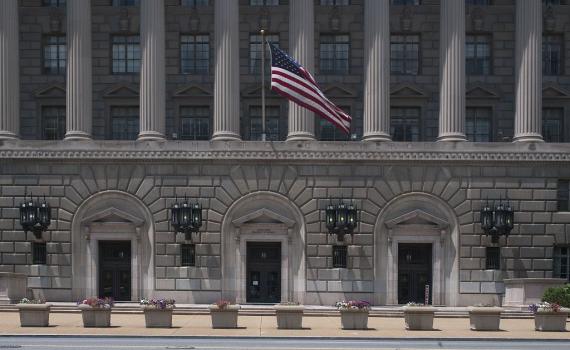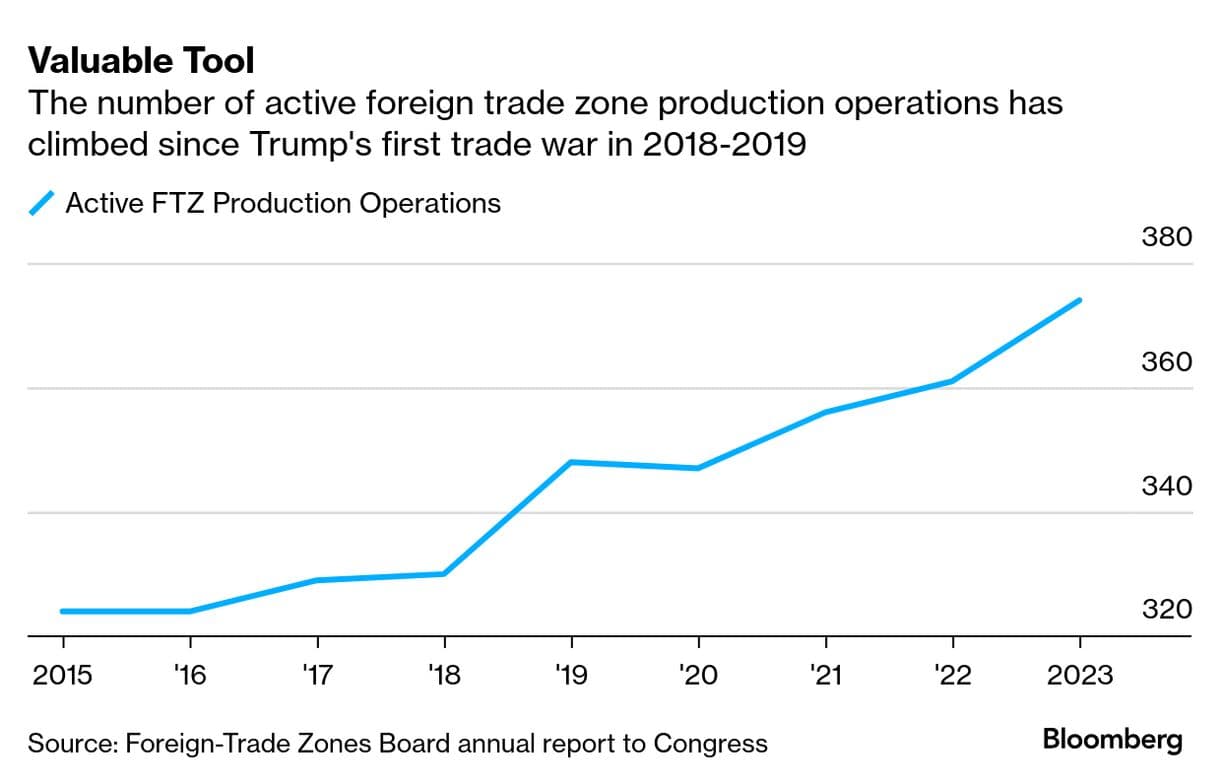The resurgence of Foreign Trade Zones (FTZs) in the United States has illustrated an alarming trend: while big corporations dodge tariffs and stockpile over $1 trillion in goods, the working class bears the brunt of economic inequality. Established initially during the Great Depression to bolster American competitiveness, these zones are now being manipulated by companies to circumvent the financial responsibilities that should be shouldered in support of domestic labor.
FTZs Serve Corporate Interests
According to the U.S. Commerce Department, nearly $1 trillion worth of goods were imported into FTZs in 2023, amounting to about one-third of all goods entering the country. This drastic increase in the use of FTZs correlates directly with the imposition of tariffs by the Trump administration, a maneuver that has seen interest in these zones quadruple. As Jackson Wood, director of industry strategy at Descartes, aptly put it, "the business case to stand up a foreign trade zone makes sense for us." However, this "sense" comes at the expense of everyday workers.
Impacts on Local Economies
While FTZs have been touted for their ability to create jobs and stimulate local economies, the reality is far more complex. Economic multipliers in FTZs, such as those in Phoenix"s Zone 75, show that for each job created within these zones, there are three to six additional jobs generated. Yet, the average wage for these new jobs has escalated from $30,000 ten years ago to $84,000 today, which raises significant questions about who truly benefits from this economic growth. As reported by the National Association of Foreign-Trade Zones, communities see a rise in employment and wage growth six to eight years post-establishment of an FTZ. But what happens to those left behind in these economic upheavals? The promise of growth is often tied to the same corporations that underpay their workers, stifling the very communities they claim to uplift.

Herbert Clark Hoover Department of Commerce Building ...
Tariff Loopholes and Economic Disparities
FTZs provide a cushion against tariffs, allowing companies to hold goods without paying duties until they are sold. However, this system is not the loophole many might think; it is a calculated strategy to ensure cash flow amidst rising costs, as highlighted by Audio-Technica"s decision to open a new warehouse in San Diego. Dan Ratley, the executive director of supply chains at Audio-Technica, stated, "With the higher tariffs, it gives us the ability to defer the payment of those tariffs until such time we take it out of the FTZ for commerce." But this deferred payment system often exacerbates the existing economic divides, as corporations find ways to capitalize on government policies while local workers struggle to make ends meet.
Environmental Considerations in Trade Policies
The environmental implications of FTZs cannot be overlooked. As companies utilize these zones to import materials without immediate tariff repercussions, the potential for unsustainable practices increases. The focus on profit margins over environmental stewardship leads to a cycle of exploitation that disproportionately impacts marginalized communities. As reported by the International Trade Administration, these zones are designed to attract manufacturing and distribution, but at what cost to our planet? The failure to hold corporations accountable for their environmental impact within FTZs not only undermines sustainability efforts but further entrenches systemic inequities.

May 30, 2023 - US debt ceiling deal news | CNN Politics
Calls for Accountability and Reform
Despite the advantages touted by FTZ advocates, the system is increasingly scrutinized for its inequities. Melissa Irmen of the National Association of Foreign-Trade Zones lamented the restrictions imposed by recent executive orders, stating that they hinder the ability of companies to maintain global competitiveness. As companies stockpile goods, the burden of tariffs shifts from corporations to consumers and workers, creating imbalances that perpetuate cycles of poverty and economic instability. The urgent need for reform is clear, as the current trade policies favor corporate interests while neglecting the rights of the labor force.







![[Video] Gunfire between Iraqi security forces and Sadr militias in Baghdad](/_next/image?url=%2Fapi%2Fimage%2Fthumbnails%2Fthumbnail-1768343508874-4redb-thumbnail.jpg&w=3840&q=75)
